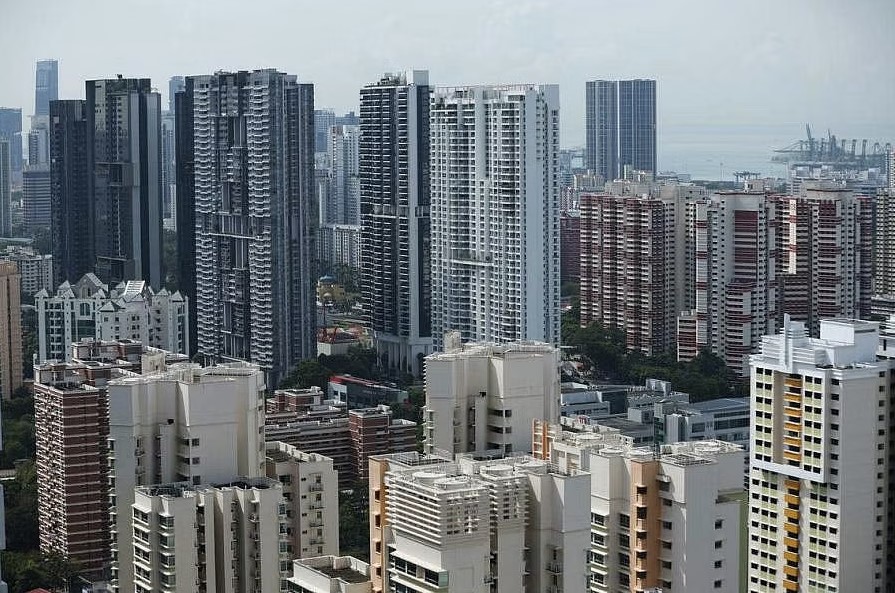Investing in rental property in Singapore in 2024 offers a lucrative opportunity for those looking to expand their investment portfolio. This market requires a keen understanding of its unique dynamics to capitalize effectively. Recognizing the critical factors before stepping into this arena is essential. This post aims to equip potential investors with the necessary insights, breaking down complex information into digestible, actionable advice.
Current Market Trends

Source: nnroad.com
The Singapore rental property market is navigating through significant shifts, primarily influenced by evolving global economic landscapes, the balance of local demand and supply, and nuanced government policies. A noticeable surge in demand for rental units, attributed largely to the arrival of international professionals and expatriates, marks a pivotal change. This is further amplified by tighter housing loan regulations, making rental options more appealing for those unable to secure home loans. For investors, grasping these trends is not just beneficial—it’s critical for spotting lucrative opportunities and forecasting the market’s direction. This understanding serves as a cornerstone for strategic investment decisions, enabling investors to stay ahead in a competitive landscape.
Legal and Regulatory Considerations
In Singapore, the rental market’s integrity is safeguarded by comprehensive laws and regulations, ensuring a level playing field for all parties involved. Central to this framework is the Residential Tenancy Act, which delineates clear rights and obligations for landlords and tenants alike. Key aspects include detailed lease agreement stipulations, security deposit norms, and mechanisms for resolving disputes efficiently. For investors, staying abreast of these legal parameters is not optional but essential to navigate the market’s complexities without facing legal hurdles. Knowledge of these laws acts as a shield against potential legal disputes, preserving the investment’s integrity.
Location Analysis
In the realm of real estate investment, the adage “location, location, location” holds unparalleled significance. Singapore’s diverse landscape offers a spectrum of investment locales, from the prime districts known for their lucrative rental yields to the heartland neighborhoods that appeal to a different tenant demographic. Critical factors such as the ease of accessing public transport, proximity to economic hubs, and the caliber of local amenities significantly influence a property’s attractiveness. A meticulous evaluation of these factors is indispensable for investors aiming to maximize their returns, making location analysis a pivotal step in the investment process. If you’re looking for a have-it-all location check out The Continuum.
Property Types and Investment Options

Source: overseaspropertyalert.com
Singapore’s dynamic rental market presents a variety of property types, each harboring unique advantages and challenges for investors. Condominiums, with their comprehensive amenities and heightened security, attract a premium tenant demographic, offering potentially higher rental yields. In contrast, landed properties, though offering more space, necessitate greater maintenance efforts. HDB flats, while accessible to a broader audience, are bound by specific rental eligibility rules. Navigating through these options requires a deep understanding of each property type’s intricacies, guiding investors toward choices that align with their investment goals and risk tolerance.
Financial Considerations
Embarking on a rental property investment in Singapore entails a significant financial commitment. The journey begins with a substantial initial investment, encompassing not just the purchase price but also additional costs such as stamp duties, legal fees, and potential renovation expenses. Balancing the anticipated rental income against ongoing financial obligations like mortgage repayments and property maintenance is crucial. A comprehensive financial analysis becomes indispensable, enabling investors to evaluate the investment’s viability and long-term profitability, ensuring informed decision-making.
Tenant Profile and Rental Market
The tenant landscape in Singapore is as varied as it is vibrant, hosting a mix of expatriates, professionals, and local families, each with distinct living preferences and financial capacities. For example, expatriates often seek out fully furnished, centrally located properties for convenience, while local families might prioritize properties near educational institutions. Understanding these diverse tenant preferences is crucial for tailoring marketing strategies and optimizing rental yields, highlighting the importance of demographic insights in shaping investment success.
Property Management
The success of a rental property investment heavily relies on effective property management. Investors face a choice between managing the property themselves or enlisting professional property management services. Opting for self-management can lead to cost savings but demands substantial time and effort. Conversely, professional services offer the convenience of expertise in tenant management, lease administration, and routine maintenance, albeit at a cost. This decision significantly impacts the investment’s operational efficiency and overall success, emphasizing the importance of considering both options’ implications carefully.
Maintenance and Upkeep

Source: realvantage.co
Ensuring rental properties remain in prime condition is fundamental to attracting and retaining tenants. Regular property inspections and timely repair interventions can avert the escalation of minor issues into major financial drains. Allocating funds for ongoing maintenance and periodic renovations is essential for maintaining the property’s market competitiveness. A well-kept property not only secures higher rental rates but also appreciates in value over time, underscoring the critical role of maintenance in enhancing investment returns.
Tax Implications
Rental income in Singapore is subject to specific tax considerations, and a thorough understanding of these obligations is paramount for investors. The tax landscape offers several deductions, including those for mortgage interest, property taxes, and maintenance costs, which can substantially lower the overall tax burden. Familiarity with available tax incentives can significantly boost the investment’s profitability, highlighting the importance of tax planning in the investment strategy.
Risks and Mitigation Strategies
Investing in rental properties is not without its risks, including potential vacancy periods, tenant defaults, and volatile market conditions. A diversified approach to property investment, thorough tenant screening processes, and adequate insurance coverage are effective strategies for mitigating these risks. Adopting a proactive risk management stance is crucial for protecting the investment, ensuring its long-term sustainability and growth in the face of market uncertainties.
Conclusion

Source: homeanddecor.com.sg
Investing in rental property in Singapore in 2024 is a promising venture that requires careful consideration of various factors. From understanding market trends to managing legal and financial aspects, each element plays a crucial role in investment success. Prospective investors are encouraged to conduct in-depth research and seek professional advice to navigate this complex market confidently. With the right approach, rental property investment in Singapore can offer substantial rewards.


















